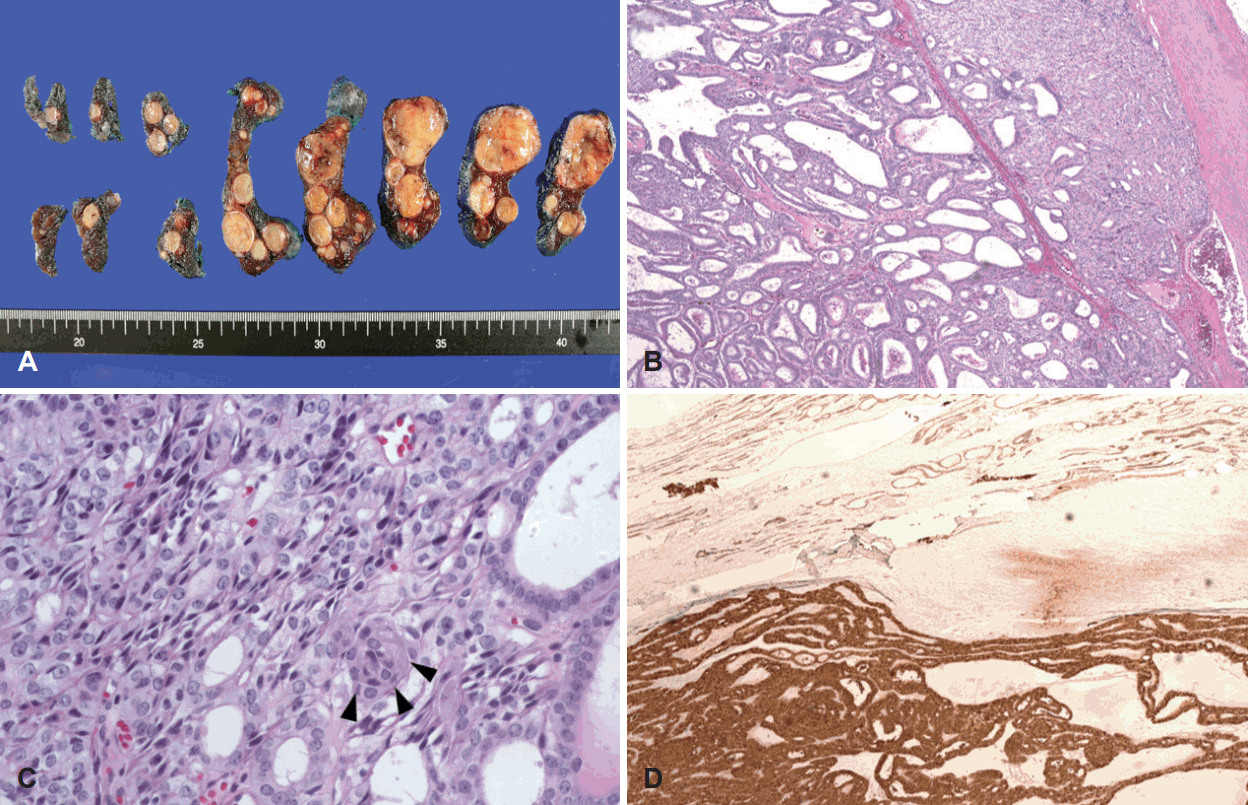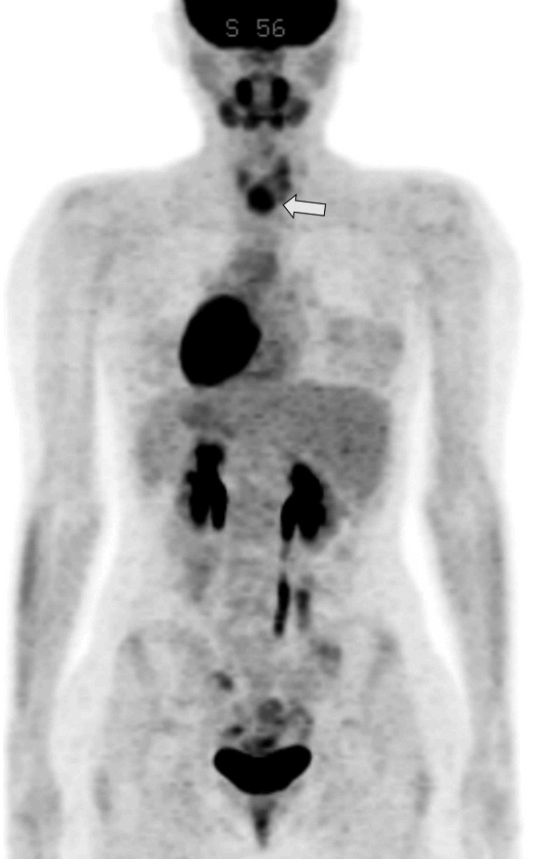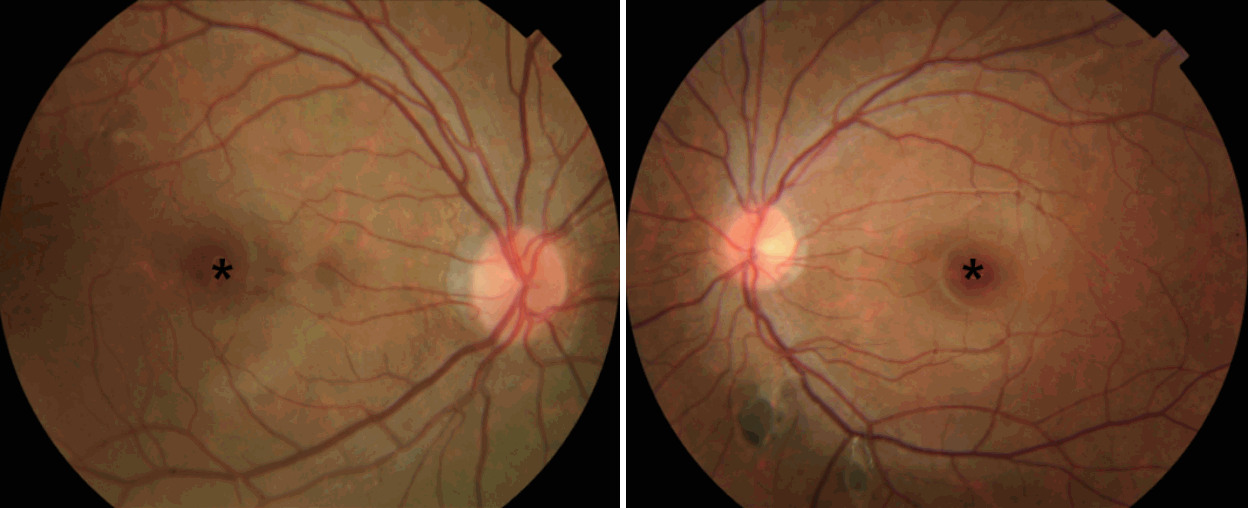서 론
증 례
 | Fig. 1.Representative images of US and CT. Initial US scan shows huge thyroid mass with isoechoic to hypoechoic heterogeneous attenuation about 3.5 cm sized- nodule in isthmus of thyroid (white asterisk) (A). Preoperative CT scan shows multiple indeterminate solitary nodules in both thyroid glands (white arrows). There is no evidence of enlarged lymph node which is suspicious for malignancy (B). US: ultrasonograpy, CT: computed tomography. |
 | Fig. 3.Thyroid gland cross section shows total 18 mass. Largest diameter of thyroid tumor was measured 3.5×3×2.5 cm at isthmus (A). Thyroid tumor with compact arrangement of cribriform, follicular, papillary, trabecular, and solid patterns by columnar cells thick. The tumor is surrounded by a fibrous capsule and colloid is not present (H&E, ×50) (B). Morular (cuboid) shaped cells shows (arrowheads) (H&E ×400) (C). The nuclei and cytoplasm was stained by β-catenin (×50) (D). |
 | Fig. 4.APC gene analysis diagram (A). Through direct sequencing, APC gene on chromosome 5q21-22 of the cribriform-morular variant papillary thyroid carcinoma patient was analyzed. A novel gene mutation, which deleted 4181-4188 nucleotides substitute Glycine for Aspartic acid, was discovered causing premature termination of the APC protein (B). APC: adenomatous polyposis coli, ASP: aspartic acid, Gly: glycine. |




 PDF
PDF Citation
Citation Print
Print




 XML Download
XML Download